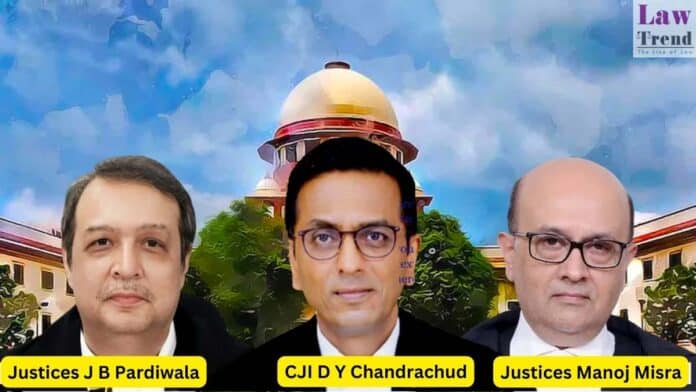The Supreme Court of India will continue its deliberations on the criminalization of marital rape on Tuesday, October 22, following a spirited session today. The bench, led by Chief Justice DY Chandrachud, along with Justices JB Pardiwala and Manoj Misra, is assessing the constitutional validity of the current legal framework, which exempts sexual acts between a husband and his wife from being categorized as rape under Section 375 of the Indian Penal Code (IPC).
The controversy centers around the exception clause in Section 375 of the IPC and its equivalent in the newly proposed Bharatiya Nyaya Sanhita (BNS), which are both under scrutiny. These laws currently state that involuntary sexual intercourse between spouses does not qualify as rape, a provision that has been met with widespread criticism and led to multiple petitions challenging its validity.
The Central government has opposed these petitions, suggesting that the issue falls within the legislative domain and should be decided by Parliament after thorough consultation with stakeholders. In its affidavit, the government argued that existing laws provide sufficient protection to married women from sexual violence within marriage and emphasized the complexity of consent in marital relationships.
The government’s stance has sparked a debate on the balance between protecting marital intimacy and safeguarding individual rights against sexual violence. The affidavit states that while there is an expectation of “reasonable sexual access” between spouses, it does not condone coercive sexual activities.
The Supreme Court’s decision to fast-track the hearing came after Senior Advocate Karuna Nandy highlighted the urgency of the matter. Despite a request from Solicitor General Tushar Mehta to postpone the discussion, CJI Chandrachud insisted on maintaining the schedule, reflecting the judiciary’s commitment to addressing this critical issue promptly.
The implications of the court’s eventual decision are profound, as it could redefine marital rights and highlight the judiciary’s role in shaping social policies against the backdrop of evolving societal norms.




